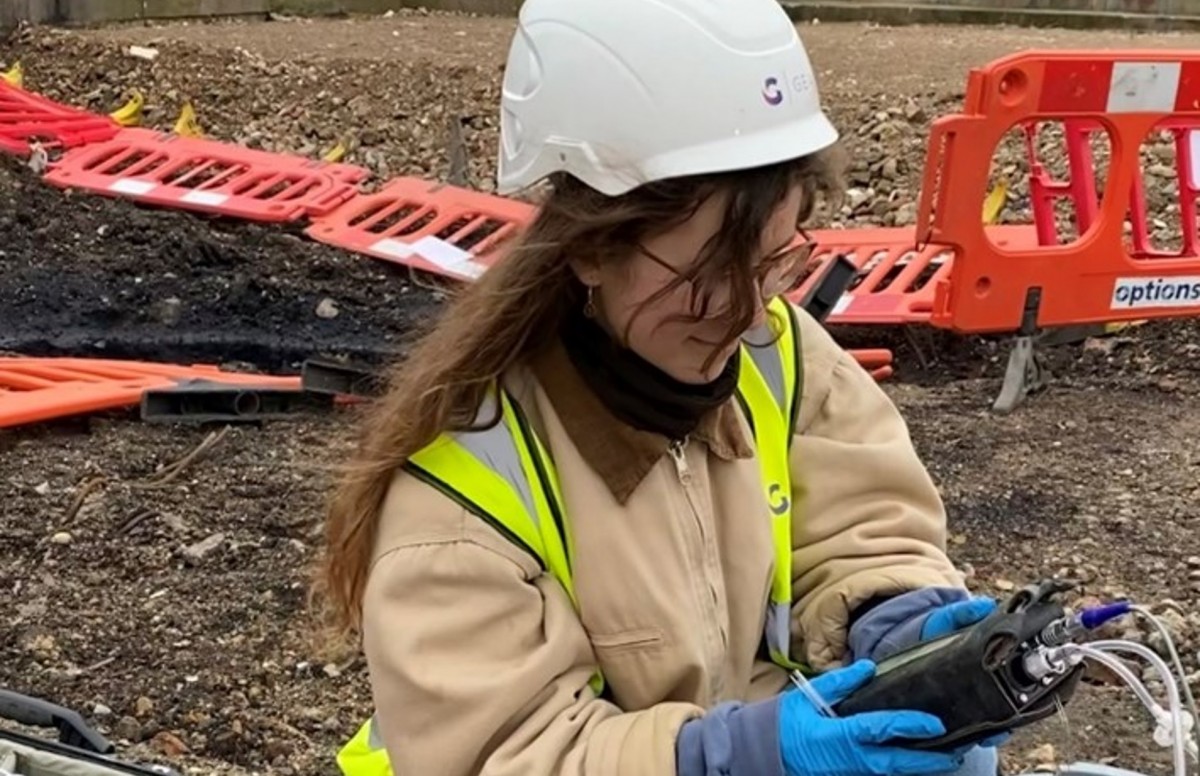9 Simple Techniques For Geotheta
9 Simple Techniques For Geotheta
Blog Article
Get This Report about Geotheta
Table of ContentsThe smart Trick of Geotheta That Nobody is DiscussingNot known Factual Statements About Geotheta Rumored Buzz on GeothetaAn Unbiased View of GeothetaThe smart Trick of Geotheta That Nobody is Discussing

They conduct website investigations, collect samples, execute lab examinations, and assess data to examine the suitability of the ground for building and construction jobs - Engineer of Record. Based upon their searchings for, geotechnical engineers offer suggestions for foundation design, incline security, keeping structures, and mitigation of geotechnical dangers. They collaborate with various other specialists, such as designers, structural engineers, and construction groups, to guarantee that geotechnical factors to consider are incorporated right into the overall project design and application
By analyzing the actions and buildings of dirt and rock, they can identify prospective geotechnical risks such as landslides, soil settlement, or slope instability. Their know-how assists stop failings or mishaps that might threaten lives and residential or commercial property. Here are some comprehensive tasks and duties of a geotechnical engineer: Site Examination: Geotechnical designers conduct site examinations to collect information on subsurface problems.
They translate the data to recognize the buildings and habits of the soil and rock, including their stamina, leaks in the structure, compaction features, and groundwater problems. Geotechnical Evaluation and Layout: Geotechnical designers assess the information collected throughout website investigations to evaluate the security and suitability of the website for building jobs. They execute geotechnical estimations and modeling to assess factors such as bearing capacity, negotiation, incline security, lateral earth stress, and groundwater circulation.
The 10-Minute Rule for Geotheta
Foundation Style: Geotechnical engineers play an essential function in creating foundations that can safely sustain the intended structure. They evaluate the soil conditions and tons demands to identify the ideal structure kind, such as shallow foundations (e.g., grounds), deep foundations (e.g (http://go.bubbl.us/e3adfd/a28b?/Geotheta)., stacks), or specialized techniques like dirt enhancement. They think about elements such as settlement limitations, bearing ability, and soil-structure communication to establish ideal foundation designs
They review building and construction strategies, monitor site tasks, and conduct field examinations to confirm that the layout suggestions are adhered to. If unexpected geotechnical issues occur, they evaluate the circumstance and give recommendations for removal or adjustments to the style. Risk Assessment and Mitigation: Geotechnical engineers evaluate geotechnical threats and risks related to the job website, such as landslides, liquefaction, or dirt erosion.

Cooperation and Communication: Geotechnical designers work closely with other professionals associated with a task, such as architects, structural designers, and building and construction groups. Effective communication and partnership are important to integrate geotechnical considerations into the overall task design and construction process. Geotechnical engineers provide technological competence, answer inquiries, and ensure that geotechnical requirements are satisfied.
The Geotheta PDFs
Right here are some kinds of geotechnical engineers: Foundation Engineer: Foundation engineers focus on creating and evaluating foundations for frameworks. They assess the dirt conditions, load demands, and website attributes to identify the most suitable foundation kind and design, such as shallow structures, deep foundations, or specialized methods like stack structures.
They assess the variables affecting slope security, such as soil properties, groundwater conditions, and slope geometry, and establish methods to avoid slope failings and minimize dangers. Quake Designer: Quake engineers focus on evaluating and creating structures to endure seismic forces. They assess the seismic risk of a site, review soil liquefaction possibility, and create seismic layout standards to ensure the security and durability of frameworks throughout quakes.
They carry out field screening, gather examples, and evaluate the gathered data to identify the soil residential properties, geologic formations, and groundwater problems at a site. Geotechnical Instrumentation Designer: Geotechnical instrumentation designers concentrate on monitoring and gauging the habits of soil, rock, and structures. They set up and maintain instrumentation systems that check factors such as soil settlement, groundwater degrees, slope movements, and architectural displacements to assess efficiency and provide very early warnings of potential concerns.
The Best Guide To Geotheta
They carry out tests such as triaxial examinations, combination tests, straight shear tests, and leaks in the structure tests to collect information for geotechnical evaluation and design. Geosynthetics Designer: Geosynthetics designers specialize in the style and application of geosynthetic products, such as geotextiles, geogrids, and geomembranes. They use these products to improve dirt stability, strengthen inclines, provide water drainage solutions, and control erosion.
They often tend to be investigatory people, which means they're intellectual, introspective, and curious. They wonder, systematic, rational, analytical, and sensible. Several of them are likewise social, suggesting they're kind, charitable, cooperative, patient, caring, helpful, compassionate, tactful, and friendly. Does this seem like you? Take our complimentary job test to discover if geotechnical engineer is just one of your top occupation suits.
In the workplace setting, geotechnical engineers use specialized software program tools to execute estimations, create designs, and examine information. They prepare records, evaluation task requirements, connect with clients and employee, and coordinate project tasks. The office setup offers a favorable environment for research, evaluation, and collaboration with other experts associated with the job.
The Buzz on Geotheta
They regularly see job websites to carry out website investigations, examine geotechnical problems, and gather information for evaluation. These sees entail taking a trip to various locations, sometimes in remote or difficult terrains. Geotechnical engineers might carry out dirt sampling, conduct tests, and display construction tasks to guarantee that the geotechnical aspects of the task are being carried out correctly.
Geotechnical engineers likewise work in specialized geotechnical research laboratories. Geotechnical research laboratory engineers function extensively in these settings, managing testing tools, running tools, and tape-recording data.
Report this page